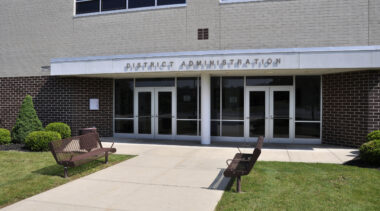Christian Barnard is assistant director of education reform at Reason Foundation.
Barnard's work includes research and analysis of state education and school district finance systems, with the goal of making them more equitable and innovative.
Barnard's writing has been featured in outlets including USA Today, Los Angeles Daily News, Washington Times, and The Hill, among others.
Barnard previously worked with the Foundation for Government Accountability, where he conducted research on labor policy and criminal justice. He also worked for the Pioneer Institute.
He holds a bachelor of arts degree in philosophy and economics from Messiah College.
-
Why Nashville would get a smaller funding increase than other urban school districts in Tennessee’s education finance reform
A central goal of Gov. Bill Lee's education funding reform is to reduce unfair funding gaps between school districts, so they can’t all receive an equal funding boost.
-
As school choice gains traction, states also need to update their school-finance formulas
States need to update school-finance formulas that fail to fund all kids fairly, are too reliant on local taxes, and don’t easily accommodate student movement between schools.
-
The needed push to reform Tennessee’s outdated school finance system
Tennessee has an outdated school funding formula that is poorly suited to serve the needs of the state’s public-school students in 2022.
-
Making Tennessee’s school finance system more transparent, flexible and fair
Only three percent of Tennessee's education funding was allocated based on student characteristics like being in a low income family, being in foster care, or needing special education services.
-
Best practices for funding low-income K-12 students
States vary substantially in how much additional funding they allocate to low-income students, how the funds are delivered, and how they identify low-income students.
-
Best practices for K-12 special education funding
There is no one right way to fund special education because each student and school district is unique. However, several principles can be a useful guide for lawmakers looking to improve how they fund special education students.
-
California’s public schools are not underfunded
Inflation-adjusted education spending in California grew by a massive 44.03% between 2013 and 2019—the fastest growth among any state.
-
Administrative bloat isn’t the biggest problem facing school district budgets
Growing employee benefit debt costs - not administrative spending - is the biggest line item keeping new education dollars out of the classroom.
-
Catholic schools get shortchanged by California and school districts
Federal law says that private schools serving disadvantaged students should receive some federal education funding, but they don’t always get it.
-
Spending data show the U.S. has not been defunding public education
When looking at the data, the verdict is clear: nearly every American state has increased per-pupil revenues in the last two decades, often by substantial margins.
-
School choice needs to be more than an escape hatch for kids in failing public schools
The next step in school choice is to embrace education funding models that appeal to families looking for a way to customize and have more control over their student’s education wherever they are at.
-
Gov. Newsom’s Misguided Proposal for California’s Education Funding Formula
The key to promoting both flexibility and fairness is better transparency and California can do this with better data, not more bureaucracy.
-
Arkansas’ School Funding System Is in Need of Reform
Simply pouring more money into a broken school finance system will not help the students most in need of educational assistance.
-
Oklahoma’s Outdated Education Funding System Is Costing Students Hundreds of Millions of Education Dollars Each Year
Education dollars should follow students to the school they are actually attending.
-
Legislation in Arizona Would Pave the Way for Educational Innovation
Learning happens everywhere and it’s time for outdated education policies to reflect this.
-
Idaho’s National Education Spending Ranking Does Not Tell the State’s Full School Funding Story
Policymakers would be wise to focus on fixing the state’s antiquated school funding formula before deciding to allocate additional education funds.
-
Public School District Boundaries Are a Relic of The Past
State open enrollment education policies are in dire need of modernization.
-
How Should States Count Students to Calculate School Funding?
School finance systems should base education funding on current enrollment figures to best serve students and promote equity.


















